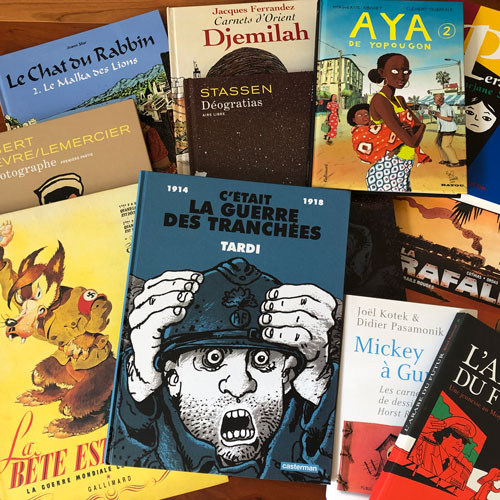
 French. Prof Charlotte Werbe has always been drawn to the magic of comics, a medium that brings together words and images in unique ways to tell stories.
French. Prof Charlotte Werbe has always been drawn to the magic of comics, a medium that brings together words and images in unique ways to tell stories.
While Werbe’s research focuses on all kinds of media, she pays special attention to comics. Given that comics and popular culture are so closely linked, they offer much information regarding the pressing concerns and anxieties of their day, she explained. For example, the past few years have seen a surge in the publication of comics treating immigration and migration.
“We live in an era that is saturated with images—on the news, on social media, in films,” said Werbe. “It is crucial that we think about how we are unpacking these images, in particular, how information is being framed and formulated by the nature of the medium.”
In the classroom, Werbe asks students to think about the ways that biases and assumptions impact the way that we engage with the world. Students are not only asked to interpret, but also to consider their own methods and practices of interpretation. Werbe uses a variety of approaches for encouraging students to respect each other’s differences. For example, she frequently organizes classroom debates, which require that students analyze topics or issues from other perspectives in a considerate and engaged manner.
This spring, she will teach the French Department’s senior seminar, “Representations of Violence in French and Francophone Comics.” In this class, students will be exposed to a range of graphic novels that treat themes of large-scale political violence, such as World War II, the Algerian War, and the Rwandan Genocide.


